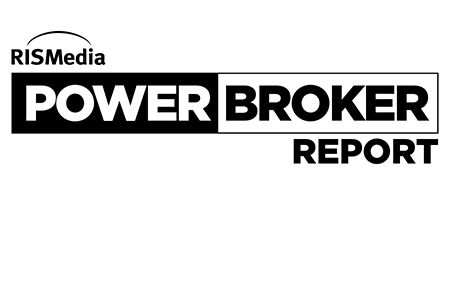Power Brokers Prep Agents to Compete in a Low-Inventory Environment
For the first time in a long time, the outlook for residential real estate is decidedly bullish. Stock markets and consumer confidence are riding high (at press time), job growth is continuing to rise, and interest rates—though on the upswing—can still be categorized as low. Despite insuperable student debt and the continued lure of renting, consumers across all demographic groups are most definitely in favor of homeownership. Yet, there’s a rub—and a big one: lack of inventory. In fact, a whopping 62 percent of respondents to RISMedia’s 2017 Power Broker Survey* reported that a lack of inventory was their biggest challenge in today’s market. And with low inventory comes pent-up demand and rising prices, putting many on alert for another potential bubble. So what’s a Power Broker to do? Make sure their agents are well prepared for the challenge.
The Race for Marketshare
While a concern in many markets last year, this year, the inventory crunch is being felt across the U.S., not just in major metro areas or hot spots like Southern California and the Pacific Northwest.
“Our biggest challenge is lack of inventory in the entry and move-up price points,” confirms Rei Mesa, president and CEO of Berkshire Hathaway HomeServices Florida Realty. “There is demand, but a great deal of it is pent-up. This is a challenge for all of us, not just my firm. To combat this, our focus is to make sure we’re getting our fair share, if not the largest percentage, of what’s available by using our brand and tools to increase our listing capture.”
Mesa’s sentiments are shared by his peers across the country, like John Collopy, broker/owner of RE/MAX Results in Eden Prairie, Minn. “The biggest change I’ve seen in our market is the constant lack of inventory available to our buyers,” he explains. “In the next couple of months, I think our biggest challenge will be to grow the individual productivity numbers of our sales executives.”
Dan Kruse agrees. “Our biggest challenge is probably the same for all markets in the U.S.: shortage of inventory,” reports the president of Century 21 Affiliated, serving markets in Wisconsin, Illinois, Indiana, Michigan, Minnesota and Florida. “To address the changes in our markets, we have regular communication with our agents. When our agents are armed with the right information and tools, they find success no matter the market conditions or competition.”
Lennox Scott, chairman and CEO of John L. Scott Real Estate in the Pacific Northwest, has been suffering through an inventory shortage for some time, and its effects are creating stagnation for current homeowners as the shortage causes prices to rise. “We are experiencing a frenzied market for homebuyers trying to get a home,” he explains. “We are virtually sold out of inventory, so each new listing is receiving multiple offers. With such a severe shortage of inventory, it is now creating seller gridlock in the more affordable and mid-price ranges. Sellers are afraid to put their home on the market, because it will sell instantly, and they are faced with trying to win in a multiple offer situation to get their next home.”
Escalating prices are a concern on the East Coast as well, which has worked to the seller’s advantage. “The Southern New England coastline is a very desirable place to live and, with very little new construction, housing stock is at a premium,” says Mike Schlott, president of Kinlin Grover, Page Taft & Randall REALTORS®. “Of course, this also creates opportunity, allowing sellers to command prices that may have been unrealistic just a couple of years ago. It is our job to educate the consumer regarding these market trends so they can make informed decisions about their real estate assets.
Preparing Agents for the Task at Hand
To maintain profitability in the midst of a shrinking inventory environment, Schlott, along with Power Brokers across the country, are ramping up efforts and investments designed to empower agents with a competitive edge.
“The biggest opportunity for our firm in the coming year involves our agent population,” explains Schlott. “We believe that by investing in their success we will continue to flourish as an organization. This means developing and implementing programs that allow our agents to do their job more efficiently.” Among those programs? Proprietary tools and services, including an award-winning web platform, the Moxi Works CRM, customized marketing services from Imprev, in-house marketing services, professional listing photography and automated property marketing, to name a few.
Kruse is also focused on increasing agent productivity. “We have chosen to reinvest in our agents in 2017 with a series of tools, systems and coaching to help take them to the next level,” he explains. “This reinvestment and growth is a big piece of our 2017 business plan.”
Of course, investing in the right technology is a critical component of preparing agents for success. “We pride ourselves on being technologically forward-thinking, and this asset is also a challenge to stay ahead of the competition and greater real estate marketplace,” says Ashley Bowers, president and COO of HomeSmart International. “But, our commitment to providing agents and brokers with the best technology and system to succeed is our ultimate goal.”
Out in Southern California, First Team Real Estate President Michael Mahon believes his agents are a critical differentiator in the firm’s highly competitive market. “Our biggest opportunity for growth in 2017 comes by way of investing in our associates,” says Mahon. The company has long been focused on helping agents build opportunities and careers through coaching, mentoring and technology evolutions to maximize customer service and exceed consumer expectations. Mahon feels this distinction will be more important than ever in his inventory-restricted region.
Power Brokers are honing in on providing agents with resources that yield tangible results. “We are constantly trying to innovate things that are real, that show real results and that genuinely help a productive agent,” explains Steve Fogarty, president of Realty Executives Associates in Knoxville, Tenn. “We’ve implemented many things over the past few years that have been extremely well received. We were paperless long before the vogue of going paperless, we have a true compliance division that oversees all listings, sales and closings, we have a great marketing department, and our staff is always available to help agents.”
Preparing agents for the rigors of a low-inventory marketplace requires not only technology and training, but great leadership, as well. “We have a strong management team that is fully committed to our sales executives,” says Collopy. “With our 30 years of experience, we have built a business plan for the upcoming years that will continue to equip our sales executives to be successful and to be the best in the real estate industry.”
Focusing on agent productivity will go hand in hand with bolstering recruiting efforts, as well. In fact, Fogarty sees recruiting as his biggest opportunity in the year ahead. “Our recruiting comes from our agents,” he explains. “What our agents tell other agents is genuine, and as a result, we attract agents from strong firms.” This year, Fogarty will also be attracting agents to his firm by offering concierge or transaction management services, which will act as an agent assistant for a nominal fee. “This will help agents do business more professionally, and do a lot more business without having to hire an actual assistant.”
In the Spotlight: Value Proposition
Investing in resources and agent success is integrally tied to a firm’s value proposition, to both its sales associates and its consumers. This holds true at the individual brokerage level all the way to the brand level.
“Remaining relevant to current and future customers and agents is a continuous challenge, one that brands must always meet head-on by staying attuned to the shifting consumer landscape in order to enhance the value we bring as a brand,” says Sue Yannaccone, president and CEO of ERA Real Estate. “We are making sure that the voice of the customer fuels the development of our product suite and our broader value proposition.”
Mesa also underscores the importance of value proposition, especially in a competitive marketplace. “We have a heightened focus on making sure we can articulate and share with passion our value proposition as a company and a brand,” he explains. “We’re leveraging the most valuable asset we have—our team members—and focusing on helping sales professionals increase productivity while continuing to protect our core: increasing selection and development by properly using and articulating our tools and value proposition.”
Value proposition will also become an instrumental weapon in the battle against new competitors. “Discount brokers are creating the environment where we are now having deeper conversations with sellers in regard to the value of our services,” says Scott. And it’s not a bad thing, he adds. “There is a major difference between advertising a home and marketing. It takes a professional to market a home in the best light to both get the home sold and get the highest price—and in today’s market, get premium pricing for the seller.”
Mahon couldn’t agree more. “The biggest change in our market is the lack of value being provided by competitors in delivery of resources to agents and customers,” he explains. “This continues to create growing issues in the market involving poorly trained cooperating agents, ethically challenged agents and brokerages, as well as a reduced value perception of consumers when forced to deal with these lesser caliber institutions and agents. Consumers deserve better, and the bar of entry, as well as customer service, needs to be a focus for the future.”
View the full Top 500 Power Broker Report here.
*Sponsored by Homes.com, Leading Real Estate Companies of the World®, Pillar To Post Home Inspectors, HSA Home Warranty and American Home Shield
RISMedia’s 29th Annual Power Broker Report & Survey is based on the top 1,000 respondents to a survey distributed via email and available online at rismedia.com. The survey ranks residential real estate brokerage firms according to closed transaction numbers and closed sales volume for the year 2016. The Top 500 list in this section is ranked by sales volume. To see the Top 1,000 firms ranked by transactions and sales volume, please reference the full Power Broker Report, coming soon to rismedia.com.
Paige Tepping, Nick Caruso, Zoe Eisenberg and Suzanne De Vita contributed to this report.
Maria Patterson is RISMedia’s executive editor. Email her your real estate news ideas at maria@rismedia.com.
For the latest real estate news and trends, bookmark RISMedia.com.












